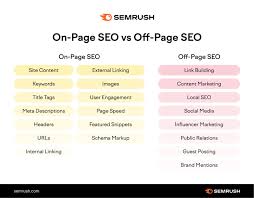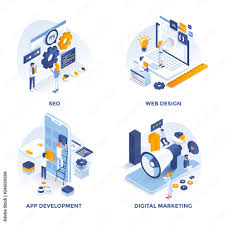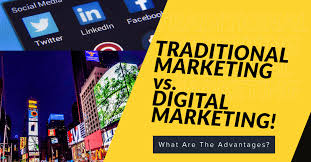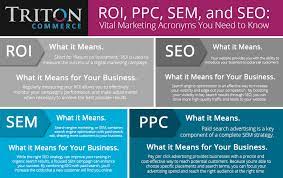The Importance of On-Page Optimization in Digital Marketing
On-page optimization is a crucial aspect of digital marketing that focuses on optimizing individual web pages to improve their search engine rankings and attract more relevant traffic. By implementing on-page optimization strategies, businesses can enhance the user experience, increase visibility, and ultimately drive conversions.
Key Elements of On-Page Optimization
There are several key elements to consider when optimizing a web page for search engines:
- Keyword Research: Identifying relevant keywords that your target audience is searching for is essential for on-page optimization. Incorporate these keywords strategically throughout your content.
- Meta Tags: Optimizing meta tags, including title tags and meta descriptions, can improve click-through rates in search engine results pages (SERPs).
- Quality Content: Creating high-quality, engaging content that provides value to users is critical for on-page SEO success.
- Image Optimization: Optimizing images with descriptive alt text and proper file names can improve accessibility and SEO.
- Internal Linking: Linking to other relevant pages within your website helps search engines understand the structure of your site and improves navigation for users.
- User Experience: Ensuring that your website is mobile-friendly, loads quickly, and offers a seamless user experience contributes to on-page optimization.
Benefits of On-Page Optimization
Effective on-page optimization offers numerous benefits for digital marketing efforts:
- Improved Search Engine Rankings: Optimizing individual web pages increases their visibility in search engine results, driving organic traffic to your site.
- Better User Experience: By focusing on providing valuable content and enhancing usability, on-page optimization improves the overall user experience on your website.
- Increase in Conversions: When users find what they are looking for easily on your optimized web pages, they are more likely to convert into leads or customers.
- Easier Website Maintenance: Well-optimized web pages are easier to maintain and update over time, ensuring continued success in digital marketing efforts.
In Conclusion
In conclusion, on-page optimization plays a critical role in digital marketing by improving search engine rankings, enhancing user experience, and driving conversions. By focusing on key elements such as keyword research, quality content creation, and user-friendly design, businesses can maximize the impact of their online presence and achieve long-term success in the competitive digital landscape.
Top 7 FAQs About On-Page Optimization in Digital Marketing
- What is on-page optimization in digital marketing?
- Why is on-page optimization important for SEO?
- How can keyword research benefit on-page optimization?
- What are the key elements of on-page optimization?
- How does quality content contribute to on-page SEO?
- Why is user experience crucial for on-page optimization?
- What are the benefits of image optimization in digital marketing?
What is on-page optimization in digital marketing?
On-page optimization in digital marketing refers to the process of optimizing individual web pages to enhance their visibility and relevance in search engine results. It involves various strategies such as keyword research, meta tag optimization, quality content creation, image optimization, internal linking, and improving user experience. By focusing on these elements, businesses can improve their search engine rankings, attract more organic traffic, provide a better user experience, and ultimately drive conversions. On-page optimization is a fundamental aspect of digital marketing that helps websites stand out in the competitive online landscape and reach their target audience effectively.
Why is on-page optimization important for SEO?
On-page optimization is crucial for SEO because it directly impacts a website’s visibility and ranking in search engine results. By optimizing individual web pages with relevant keywords, meta tags, quality content, and user-friendly elements, businesses can improve their chances of being discovered by their target audience. Effective on-page optimization not only helps search engines understand the relevance of a website’s content but also enhances the overall user experience. This leads to increased organic traffic, higher search engine rankings, and ultimately better conversion rates. In essence, on-page optimization is essential for SEO as it lays the foundation for a successful digital marketing strategy by making a website more accessible and appealing to both users and search engines.
How can keyword research benefit on-page optimization?
Keyword research plays a vital role in on-page optimization within digital marketing by helping businesses understand the specific terms and phrases their target audience uses when searching online. By conducting thorough keyword research, businesses can identify high-value keywords that have the potential to drive relevant traffic to their website. Integrating these keywords strategically into on-page content, meta tags, and other elements helps search engines recognize the relevance of the web page to user queries, ultimately improving search engine rankings and increasing visibility. Effective keyword research not only enhances on-page SEO but also contributes to creating valuable content that resonates with users, leading to a better overall user experience and increased conversion rates.
What are the key elements of on-page optimization?
One of the most frequently asked questions in digital marketing is, “What are the key elements of on-page optimization?” The key elements of on-page optimization encompass various strategies that focus on enhancing individual web pages to improve search engine rankings and attract relevant traffic. These elements include conducting thorough keyword research to target relevant search terms, optimizing meta tags such as title tags and meta descriptions for improved visibility in search results, creating high-quality content that engages users and incorporates targeted keywords, optimizing images with descriptive alt text, implementing internal linking to enhance site structure and user navigation, and ensuring a seamless user experience through mobile-friendliness and fast page loading times. By addressing these key elements, businesses can effectively optimize their web pages for better search engine visibility and user engagement.
How does quality content contribute to on-page SEO?
Quality content is a cornerstone of on-page SEO in digital marketing as it plays a vital role in attracting and engaging users, as well as signaling relevance to search engines. By creating high-quality, relevant, and valuable content that addresses the needs and interests of the target audience, businesses can improve their search engine rankings and visibility. Quality content that incorporates strategic use of keywords, provides useful information, and encourages user interaction not only enhances the user experience but also increases the likelihood of earning backlinks from other reputable sites. Ultimately, quality content contributes to on-page SEO by establishing credibility, authority, and trustworthiness, which are key factors in driving organic traffic and achieving digital marketing success.
Why is user experience crucial for on-page optimization?
User experience is crucial for on-page optimization in digital marketing because it directly impacts how visitors interact with a website and influences their behavior. A positive user experience not only keeps visitors engaged and encourages them to explore further but also improves the likelihood of conversions. Search engines prioritize user-friendly websites in their rankings, making user experience an essential factor for on-page optimization success. By focusing on creating a seamless and intuitive user experience, businesses can enhance their online presence, increase customer satisfaction, and ultimately drive better results in their digital marketing efforts.
What are the benefits of image optimization in digital marketing?
Image optimization in digital marketing offers several key benefits. Firstly, optimized images can enhance the overall user experience of a website by improving loading times and reducing bounce rates. By ensuring that images are properly compressed, formatted, and tagged with descriptive alt text, businesses can make their content more accessible to users with visual impairments and improve their site’s SEO performance. Additionally, optimized images can also contribute to higher search engine rankings, as search engines consider factors like image file names and alt text when determining relevance. Overall, image optimization is a crucial aspect of on-page optimization that can help businesses attract more organic traffic, engage users effectively, and ultimately drive conversions.




